-
 Bitcoin
Bitcoin $83,291.0340
-0.96% -
 Ethereum
Ethereum $1,826.6379
-1.54% -
 Tether USDt
Tether USDt $0.9998
0.00% -
 XRP
XRP $2.0549
-1.26% -
 BNB
BNB $606.8753
1.28% -
 Solana
Solana $119.1310
-4.05% -
 USDC
USDC $1.0000
0.00% -
 Dogecoin
Dogecoin $0.1659
-1.56% -
 Cardano
Cardano $0.6500
-2.57% -
 TRON
TRON $0.2364
-0.34% -
 Toncoin
Toncoin $3.7730
-5.06% -
 UNUS SED LEO
UNUS SED LEO $9.4476
0.65% -
 Chainlink
Chainlink $13.0772
-2.81% -
 Stellar
Stellar $0.2627
-1.16% -
 Avalanche
Avalanche $18.6021
-1.63% -
 Sui
Sui $2.3506
0.90% -
 Shiba Inu
Shiba Inu $0.0...01230
1.04% -
 Hedera
Hedera $0.1637
0.05% -
 Litecoin
Litecoin $83.5759
2.10% -
 Polkadot
Polkadot $4.0229
-0.74% -
 MANTRA
MANTRA $6.3749
2.08% -
 Bitcoin Cash
Bitcoin Cash $303.6743
-0.24% -
 Bitget Token
Bitget Token $4.5449
-0.46% -
 Dai
Dai $1.0000
-0.01% -
 Ethena USDe
Ethena USDe $0.9997
-0.01% -
 Pi
Pi $0.6435
-7.05% -
 Hyperliquid
Hyperliquid $12.2904
-5.52% -
 Monero
Monero $214.8078
-0.76% -
 Uniswap
Uniswap $6.0066
-0.82% -
 Aptos
Aptos $5.2560
0.22%
Are there any introductory tutorials on perpetual contracts suitable for novices?
Perpetual contracts, unique derivatives in cryptocurrency trading, grant traders the ability to speculate on future asset prices without fixed expiration dates, enabling them to maintain leveraged positions indefinitely.
Nov 19, 2024 at 08:38 pm
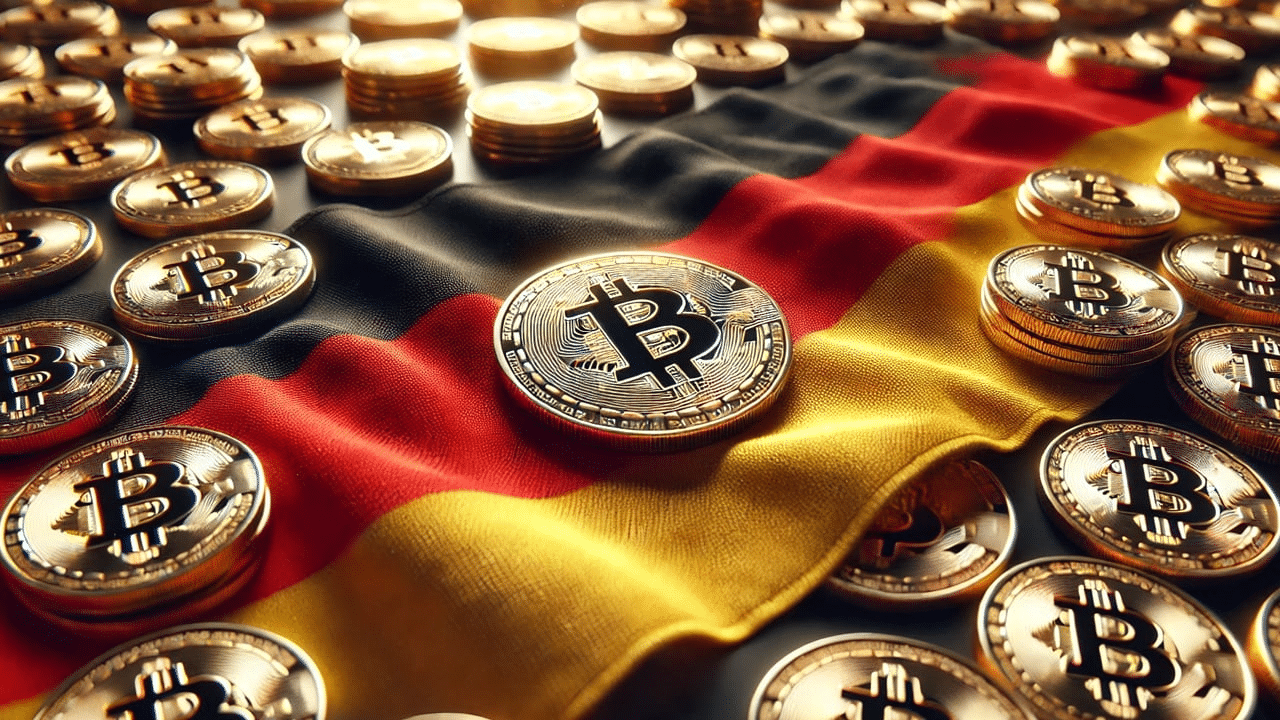
Getting Started with Perpetual Contracts for Beginners: An Introductory Guide
Perpetual contracts, a type of derivative instrument, have gained increasing popularity in the cryptocurrency space. Unlike regular futures contracts that expire on a specific date, perpetual contracts allow traders to maintain leveraged positions indefinitely. This guide aims to provide a comprehensive introduction to perpetual contracts, catering specifically to novice traders who seek to navigate the intricacies of this complex trading tool.
Step 1: Understanding the Basics of Perpetual Contracts
- Perpetual contracts are a type of derivative financial instrument that allows traders to speculate on the future price of an underlying asset, such as Bitcoin or Ethereum. Unlike regular futures contracts that have a predetermined expiration date, perpetual contracts do not expire and can be held indefinitely.
- Perpetual contracts are typically traded on margin, meaning traders can use leverage to increase their potential profits and losses. However, it's crucial to understand the risks associated with leverage and use it judiciously to avoid significant losses.
- The price of a perpetual contract is determined by the underlying asset's spot price and a funding rate. The funding rate is a periodic payment made between traders on opposite sides of the contract to ensure that the perpetual contract's price remains closely aligned with the spot price.
Step 2: Choosing a Suitable Perpetual Contract Exchange
- Selecting a reputable and reliable perpetual contract exchange is paramount for successful trading. Factors to consider include liquidity, trading fees, security measures, and the availability of various contract types.
- Some popular perpetual contract exchanges include Binance, Huobi, and OKX. These exchanges offer a wide range of trading pairs, competitive fees, and robust security features to ensure a secure trading environment.
Step 3: Opening a Trading Account and Funding It
- Once you've chosen an exchange, you need to create a trading account and fund it with the necessary cryptocurrency. The process usually involves providing personal information, verifying your identity, and depositing funds from an external cryptocurrency wallet or through supported payment methods.
- It's important to carefully review the exchange's terms and conditions, including deposit fees, withdrawal limits, and any other relevant details, before proceeding.
Step 4: Understanding Order Types and Placing Trades
- Perpetual contracts can be traded using various order types, each with its own unique characteristics. Limit orders allow traders to specify the price at which they want to buy or sell, while market orders execute trades at the current market price.
- When placing a trade, traders need to determine the position size, leverage, and take profit/stop loss levels to manage their risk exposure effectively.
Step 5: Monitoring Positions and Managing Risk
- Once a trade is placed, traders should actively monitor its performance and adjust their positions as needed. This involves tracking the contract's price, funding rate, and any other relevant market information.
- Risk management strategies such as stop-loss orders, position sizing, and diversification can help traders mitigate potential losses and preserve capital.
Step 6: Withdrawing Profits and Closing Positions
- When traders are satisfied with their profits or wish to close their positions, they can do so by placing a closing order. The process involves selling or buying an equivalent amount of the perpetual contract to exit the trade.
- Once the trade is closed, traders can withdraw their profits or transfer them to other trading activities as desired.
Step 7: Additional Tips for Beginners
- Start with a small amount of capital and gradually increase your position size as you gain experience and confidence.
- Use a demo account to practice trading without risking real capital.
- Continuously educate yourself about perpetual contracts and market conditions to refine your trading strategies.
- Seek guidance from experienced traders or join trading communities to learn from others.
- Exercise patience and avoid making impulsive or emotional trading decisions.
Conclusion
Perpetual contracts offer a powerful tool for speculating on the price of cryptocurrencies. By following the steps outlined in this guide, novice traders can gain a solid foundation in the world of perpetual contracts, enabling them to make informed trading decisions and potentially enhance their returns. However, it's essential to approach perpetual contract trading with caution, manage risk effectively, and continuously seek knowledge to avoid potential losses and maximize trading success.
Disclaimer:info@kdj.com
The information provided is not trading advice. kdj.com does not assume any responsibility for any investments made based on the information provided in this article. Cryptocurrencies are highly volatile and it is highly recommended that you invest with caution after thorough research!
If you believe that the content used on this website infringes your copyright, please contact us immediately (info@kdj.com) and we will delete it promptly.
- Bitcoin (BTC) price falls four per cent after Donald Trump imposes tariffs on trading partners worldwide
- 2025-04-03 14:25:13
- Ethereum Price Fails to Maintain Gains
- 2025-04-03 14:25:13
- Justin Sun, Founder of Tron, Steps in to Rescue TrueUSD (TUSD) from a $456M Reserve Crisis
- 2025-04-03 14:20:12
- Meme Coins Are Exploding, Here's Why They're So Appealing
- 2025-04-03 14:20:12
- Qubetics ($TICS): The Best 100x Crypto for Real Utility and ROI
- 2025-04-03 14:15:12
- Ethereum Faces Tough Market Conditions
- 2025-04-03 14:15:12
Related knowledge
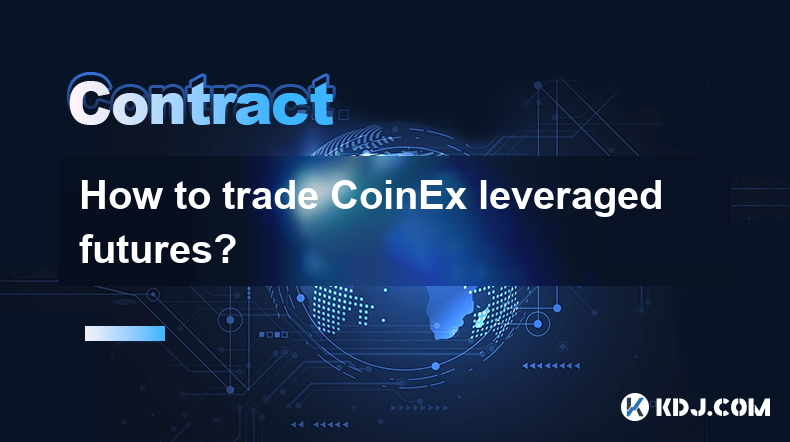
How to trade CoinEx leveraged futures?
Apr 03,2025 at 03:56am
Trading leveraged futures on CoinEx can be an exciting way to potentially amplify your profits in the cryptocurrency market. Leveraged futures allow traders to borrow funds to increase their trading position, which can lead to higher returns, but also comes with increased risk. In this article, we will guide you through the process of trading CoinEx lev...
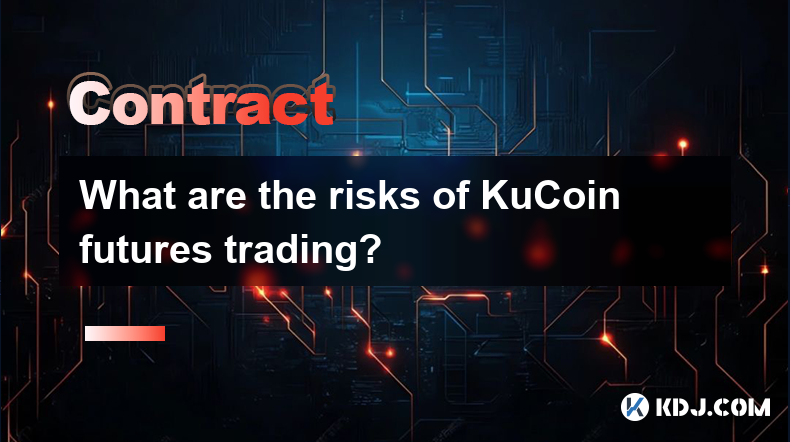
What are the risks of KuCoin futures trading?
Apr 03,2025 at 01:14am
KuCoin futures trading offers traders the opportunity to speculate on the future price of cryptocurrencies, but it comes with its own set of risks that traders need to be aware of. Understanding these risks is crucial for anyone looking to engage in futures trading on the KuCoin platform. This article will delve into the various risks associated with Ku...
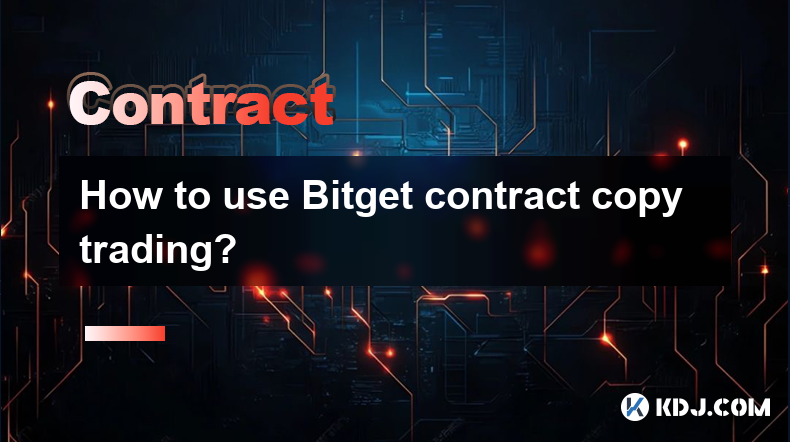
How to use Bitget contract copy trading?
Apr 03,2025 at 08:28am
Bitget's contract copy trading feature allows users to automatically replicate the trades of experienced traders, known as 'lead traders.' This can be a valuable tool for those looking to benefit from the expertise of others without having to spend time analyzing the market themselves. To start using this feature, you first need to understand how to sel...
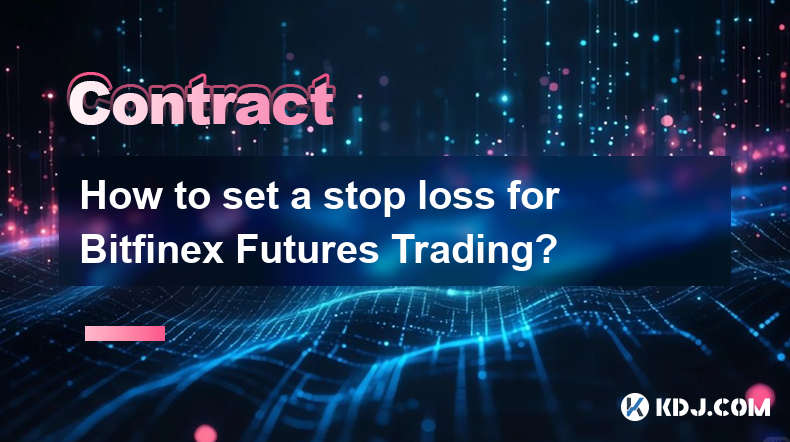
How to set a stop loss for Bitfinex Futures Trading?
Apr 03,2025 at 12:35pm
Setting a stop loss for Bitfinex Futures Trading is an essential risk management strategy that can help traders limit potential losses. A stop loss order is an instruction to sell a futures contract when it reaches a certain price, helping you to manage your exposure in volatile markets. To set a stop loss on Bitfinex, you need to navigate through the p...
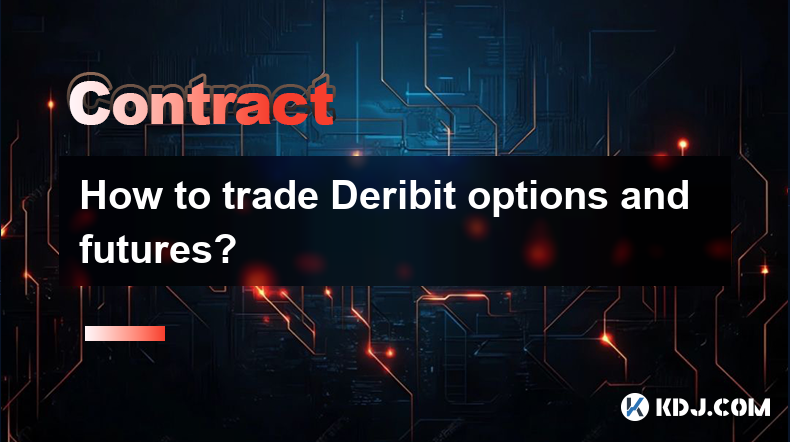
How to trade Deribit options and futures?
Apr 03,2025 at 02:00pm
Trading Deribit options and futures can be an exciting venture for those interested in the cryptocurrency market. Deribit, a leading platform for crypto derivatives, offers a variety of trading instruments including options and futures on Bitcoin and Ethereum. To successfully trade on Deribit, it's essential to understand the basics of these financial i...
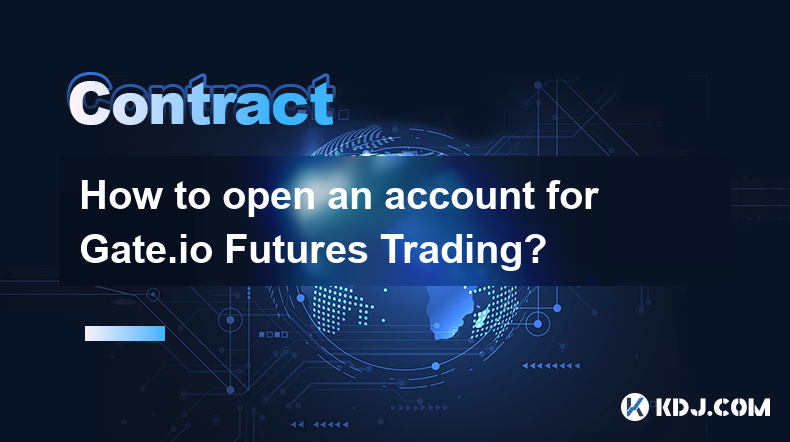
How to open an account for Gate.io Futures Trading?
Apr 03,2025 at 09:01am
Opening an account for Gate.io Futures Trading is a straightforward process that allows you to dive into the exciting world of cryptocurrency futures. To get started, you'll need to follow a few simple steps to ensure your account is set up correctly and securely. This guide will walk you through the process, from registering on the Gate.io platform to ...

How to trade CoinEx leveraged futures?
Apr 03,2025 at 03:56am
Trading leveraged futures on CoinEx can be an exciting way to potentially amplify your profits in the cryptocurrency market. Leveraged futures allow traders to borrow funds to increase their trading position, which can lead to higher returns, but also comes with increased risk. In this article, we will guide you through the process of trading CoinEx lev...

What are the risks of KuCoin futures trading?
Apr 03,2025 at 01:14am
KuCoin futures trading offers traders the opportunity to speculate on the future price of cryptocurrencies, but it comes with its own set of risks that traders need to be aware of. Understanding these risks is crucial for anyone looking to engage in futures trading on the KuCoin platform. This article will delve into the various risks associated with Ku...

How to use Bitget contract copy trading?
Apr 03,2025 at 08:28am
Bitget's contract copy trading feature allows users to automatically replicate the trades of experienced traders, known as 'lead traders.' This can be a valuable tool for those looking to benefit from the expertise of others without having to spend time analyzing the market themselves. To start using this feature, you first need to understand how to sel...

How to set a stop loss for Bitfinex Futures Trading?
Apr 03,2025 at 12:35pm
Setting a stop loss for Bitfinex Futures Trading is an essential risk management strategy that can help traders limit potential losses. A stop loss order is an instruction to sell a futures contract when it reaches a certain price, helping you to manage your exposure in volatile markets. To set a stop loss on Bitfinex, you need to navigate through the p...

How to trade Deribit options and futures?
Apr 03,2025 at 02:00pm
Trading Deribit options and futures can be an exciting venture for those interested in the cryptocurrency market. Deribit, a leading platform for crypto derivatives, offers a variety of trading instruments including options and futures on Bitcoin and Ethereum. To successfully trade on Deribit, it's essential to understand the basics of these financial i...

How to open an account for Gate.io Futures Trading?
Apr 03,2025 at 09:01am
Opening an account for Gate.io Futures Trading is a straightforward process that allows you to dive into the exciting world of cryptocurrency futures. To get started, you'll need to follow a few simple steps to ensure your account is set up correctly and securely. This guide will walk you through the process, from registering on the Gate.io platform to ...
See all articles























































































